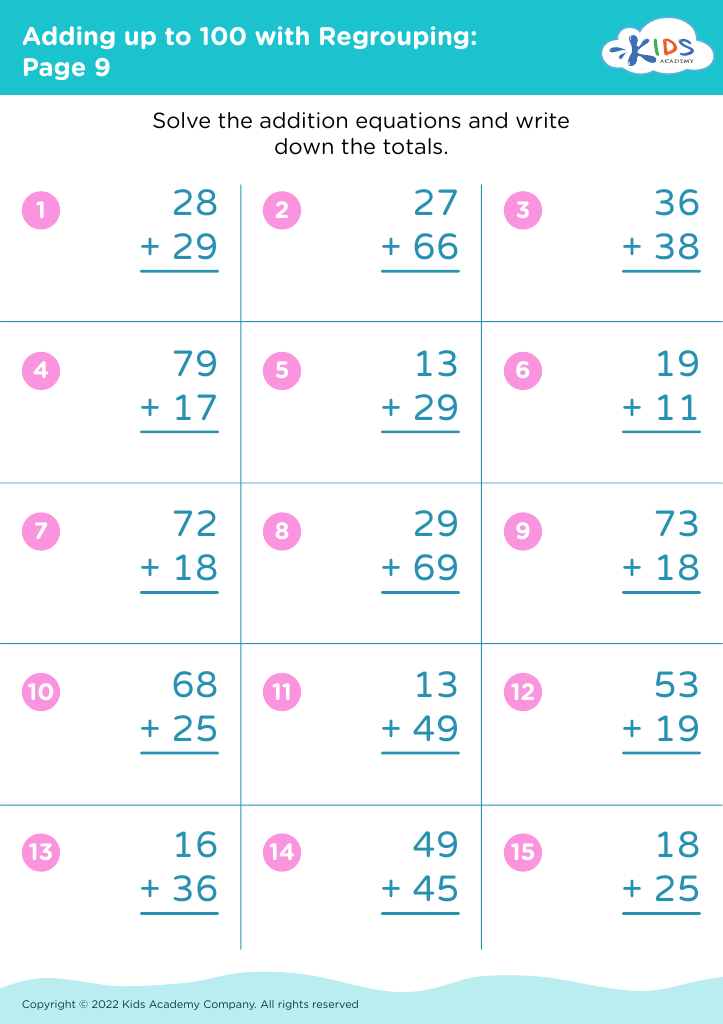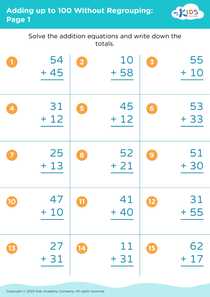Fraction comparison Adding up to 100 with Regrouping Worksheets for Ages 6-8
3 filtered results
-
From - To
Enhance your child's understanding of fractions with our "Fraction Comparison: Adding Up to 100 with Regrouping" worksheets designed for ages 6-8. These engaging materials foster a solid foundation in comparing and adding fractions while ensuring mastery of regrouping concepts. Our worksheets feature fun illustrations and interactive exercises to make learning enjoyable, encouraging critical thinking and problem-solving skills. Perfect for classroom use or at-home practice, these resources support young learners in developing confidence with mathematics. Help your child navigate the world of fractions and regrouping with this comprehensive collection! Download now and watch their skills soar!
Fraction comparison and addition, especially involving regrouping, are essential skills for children aged 6-8. Mastering these concepts lays a strong foundation for more advanced mathematics. At this stage, children begin to understand parts of a whole, making it crucial for them to grasp how fractions compare to each other. This foundational knowledge not only aids in numerical fluency but fosters critical thinking and problem-solving skills.
Regrouping in addition, particularly with fractions, teaches children how to manage and manipulate numbers effectively. This ability to regroup promotes flexibility in thinking—an important trait as they progress in math. Offering children exercises that involve adding fractions up to 100 solidifies understanding and encourages them to visualize and analyze relationships between numbers, vital skills that extend beyond math.
Moreover, engaging with these concepts through games or real-life situations makes learning enjoyable and relevant, increasing motivation and confidence. When parents and teachers emphasize the importance of these skills, they not only enhance students' academic growth but also equip them with practical skills for everyday life, ultimately fostering a generation that appreciates and understands mathematics. Investing in these early skills pays dividends in a child’s educational journey and promotes lifelong learning.















